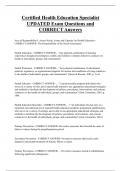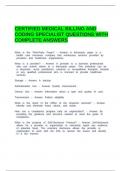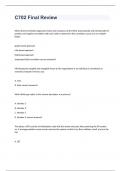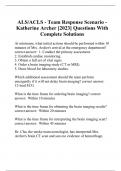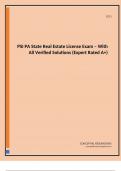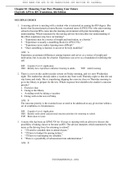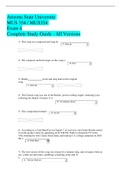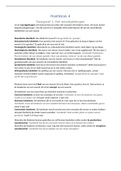Exam (elaborations)
Certified Health Education Specialist UPDATED Exam Questions and CORRECT Answers
- Course
- Institution
Certified Health Education Specialist UPDATED Exam Questions and CORRECT Answers Area of Responsibility I: Assess Needs, Assets and Capacity for Health Education - CORRECT ANSWER- The Responsibility of the Needs Assessment Health Education - CORRECT ANSWER- - ''Any planned combination of lear...
[Show more]
